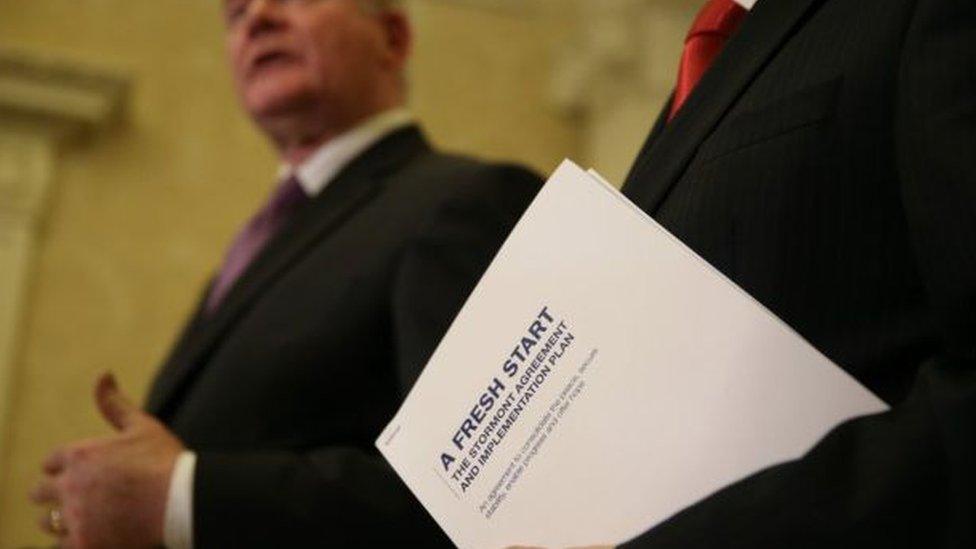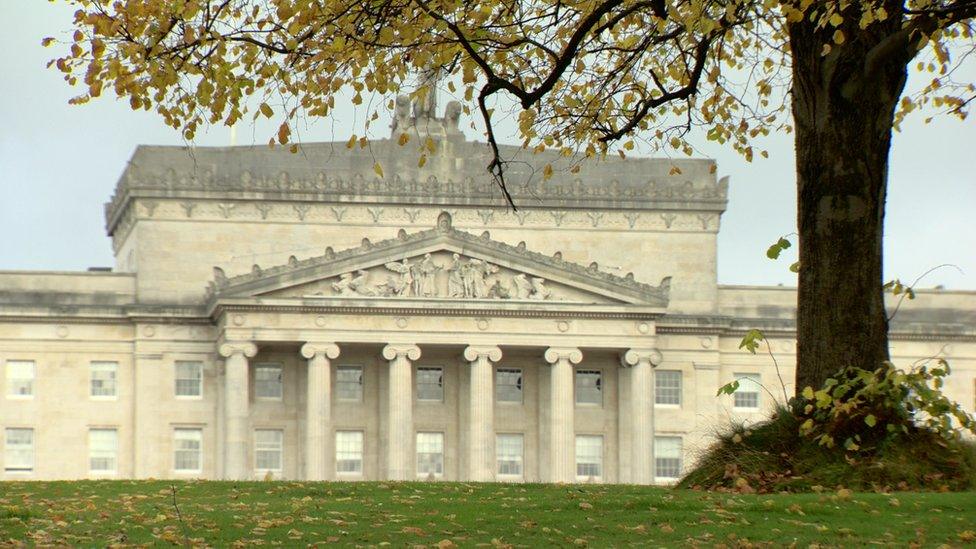NI politicians pull back from precipice with 'Fresh Start' deal
- Published
- comments

It is claimed the agreement has secured an extra £500m for the Stormont budget
After 10 weeks of negotiations the "Fresh Start" deal, external means that once again Stormont's politicians have pulled back from the edge of the precipice.
Failure to reach a compromise would have meant the executive's so called "fantasy budget" would have run out at some point before the start of the next financial year.
Before we had reached that point, the key players would probably have walked away and Westminster would have had to reinstate direct rule.
Fans of this deal may point out that, for all Stormont's drawbacks, a recent BBC RTÉ survey showed continued devolution to be the most favoured option in the short to medium term - backed by 42% of those interviewed in Northern Ireland.
It also claimed the agreement has secured an extra £500m for the Stormont budget.
However, critics insist the "Fresh Start" is - in the words of the Alliance party - a false dawn.
The most obvious weakness is the failure to agree how to deal with the legacy of the Troubles.
There is no sign of any end to the deadlock between the government and republicans about whether "national security" is a valid reason to withhold the disclosure of sensitive information to victims' families.
Welfare changes
On paramilitarism, the DUP has settled for less than the old Independent Monitoring Commission.
After the murder of former IRA member Kevin McGuigan, DUP politicians demanded Sinn Féin's exclusion from the executive.
But the new four strong international body won't - unlike the old IMC - have the power to recommend any similar sanction. That's why the TUV says the deal has "swept murder under the carpet".
On welfare reform, Sinn Féin may have hoped the UK's voters would elect a Labour led government back in May, which might have offered them a better deal.
Instead, they got the Conservatives and George Osborne's determination to lower the benefit cap and cut tax credits.
The new mitigation package of £585m will be funded from the Stormont budget.
On the face of it, the package looks £20m more generous than the one agreed last Christmas.
But it is being divided between those impacted by tax credits, who will get £240m in payments and those hit by the welfare changes, who will have to make do with £345m - less than was on the table for the same group last year.
This two party two government deal is bound to face criticism from those who did not negotiate it.
But the DUP and Sinn Féin have the votes necessary to push it through.
When voters cast their verdicts next May, will they be most struck by the image of the First and Deputy First Ministers now pledging to work together?
Or will the chaos and deadlock of the last ten weeks be foremost in their minds?
- Published18 November 2015
